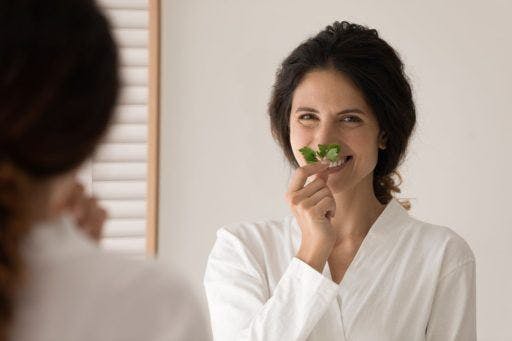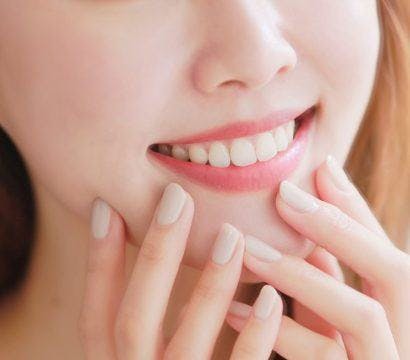Developing an oral care routine for clean teeth today will protect you against dental problems in the future. But more than giving you a healthy smile, maintaining good oral care habits can improve your overall well-being. Read on to elevate your dental hygiene and reap the benefits beyond your teeth.
How clean teeth helps your health and well-being
The human mouth can harbour over 700 species of bacteria, reveals a Journal of Oral and Maxillofacial Pathology study. While many are harmless, some can wreak havoc on your body. So, consider toothbrushing one of your first layers of defence against countless health issues.
Below are some benefits of prioritising your oral health.
Cavity prevention
The World Health Organization (WHO) listed dental caries, or tooth decay, as the most common noncommunicable disease worldwide. That’s something to consider the next time you are tempted to kick your shoes off and hit the sack without cleaning your teeth. Take the time to brush and floss your teeth twice per day (once in the morning and at night).
Lower risk of tooth loss
Research from the Australian Institute of Health and Welfare reveals those aged between 55 and 74 years lose 8.8 teeth on average. So, even if you’re not over 50 yet, take precautions now to prevent tooth loss later.
Fresh breath

Harvard Medical School explains that bacteria in the mouth cause bad breath. Food particles accumulated between your teeth can lead to plaque and bacteria buildup, resulting in bad breath. Other conditions like gum disease and a dry mouth may also make your mouth smell unpleasant.
Besides ensuring your teeth are clean, you should also keep your mouth hydrated by drinking plenty of water. And consider supplementing your oral hygiene routine with a mouthwash. Before going to bed, give your mouth a quick swish to minimise morning breath.
A brighter smile
Maybe you rely on consuming endless amounts of coffee to get through the day. If this is you, be aware of the teeth-staining effects from your morning cuppa. Consider trading your usual double shot latte for a light herbal tea.
If you can’t give up your coffee habit, try having it only in the morning. Brush your teeth right after so it doesn’t sit on your teeth all day.
Besides caffeinated drinks, highly acidic foods or beverages can damage your dental enamel. When you forget to brush or rinse your teeth after consumption, you increase your risk of teeth discolouration. Your lunch of puttanesca and key lime pie might make your stomach happy, but their acidity might affect your smile.
Tip: Instead of washing it all down with soda, grab a fresh glass of water to wash away any acids left behind.
Improved overall health
Clean teeth will do wonders for your smile, but maintaining good oral hygiene may help safeguard your overall health. Research from the International Journal of Molecular Sciences lists gum disease as one of the risk factors for diabetes and cardiovascular disease. A healthy diet and regular exercise remain the best preventative measures against these conditions. But it won’t hurt to keep your teeth clean while you’re at it.
Better self-confidence
Perhaps you’re used to shying away from the camera because of your yellowish teeth. Or maybe you often keep your thoughts to yourself because of your bad breath. Regain your confidence with clean teeth. Optimum oral hygiene ensures the health of your pearly whites and effectively boosts your self-esteem.
How can I keep my teeth healthy?
A diligent oral hygiene routine can keep your teeth healthy. It means brushing your teeth twice daily, flossing at least once, and visiting your dentist two times a year – or when you feel like you need to.
If you have any dental issues, you may want to ask your dentist for the best solutions. For example, crooked teeth can hide bacteria that your toothbrush may be unable to reach.
ClearCorrect can straighten overlapping or crowded teeth, saving you from a myriad of dental woes. It uses a tri-layer ClearQuartz material that combines two layers of resilient polymers with an elastomeric inner layer. This feature helps push your teeth to the right places gently but effectively.
These cutting-edge aligners also have a high and flat trimline scientifically proven to optimise force transmission, resulting in more accurate tooth movement and enhanced root control.
Take this online smile assessment to know if you’re a candidate for clear aligners.
What kind of toothpaste should I use?
Read your toothpaste’s label to check that it has the right ingredients for your goals, whether cavity control, bad breath, or whitening.
Fluoride is, perhaps, the most important component your toothpaste should have. A study in the Australian Dental Journal reports that kiddie toothpaste in the country usually skips this ingredient, which is a shame. Sodium fluoride, according to a 2022 study, hinder the growth and metabolism of bacteria, reducing chances of developing plaque.
Another ingredient that can fight this sticky, cavity-causing substance is zinc citrate, which also freshens your breath, likewise inhibiting odour-causing bacteria.
If your main aim is to whiten your teeth, look for abrasives and bleaching agents, such as silica, pyrophosphates, hydrogen peroxide or carbamide peroxide.
Should I use mouthwash?
A mouthwash isn’t necessary, especially if you’re confident about your brushing technique. However, it’s a nice layer of protection against cavities, bad breath, and other potential oral hygiene problems.
According to the National Health Service, using mouthwash right after brushing could rinse away the protective fluoride coating already laid on by your toothpaste. Even a mouthwash with fluoride won’t be as effective as the concentrated version in your toothpaste.
However, a mouthwash is a good alternative when brushing is not an option, such as eating out.
What is the best way to clean my teeth?

No matter how attentive you are when brushing your teeth, you may still skip hard-to-reach areas, leading to plaque buildup. See your dentist twice a year to get professional dental cleans and prevent conditions like dental plaque and cavities.
When it comes to maintaining your dental hygiene at home, the Australian Dental Association recommends these best practices:
- Brushing your teeth twice a day with a fluoride toothpaste
- Timing your toothbrushing for two minutes
- Flossing daily
- Limiting your intake of sugary food and drink
- Drinking plenty of fluoridated water
- Avoiding smoking cigarettes or any other use of tobacco products
Going the extra mile to fix malocclusions (crowding, overbites, etc.) that make cleaning the spaces between teeth more difficult is well worth it.
Don’t forget to ask your dentist about ClearCorrect! These aligners offer a subtle and comfortable approach to treating dental misalignments so you can achieve cleaner teeth and flash your smile with renewed confidence.
The truth is that maintaining clean teeth isn’t just about toothbrushing and flossing. It also involves making lifestyle adjustments that result in total mind and body wellness. Remember – the condition of your teeth can dictate how the rest of your body feels, so make sure you keep your oral health a top priority.
References:
Deo, P. N., & Deshmukh, R. (2019). Oral microbiome: Unveiling the fundamentals. Journal of Oral and Maxillofacial Pathology, 23(1), 122.
Home Oral care. (n.d.). American Dental Association.
Liccardo, D., Cannavò, A., Spagnuolo, G., Ferrara, N., Cittadini, A., Rengo, C., & Rengo, G. (2019). Periodontal disease: a risk factor for diabetes and cardiovascular disease. International Journal of Molecular Sciences, 20(6), 1414.
Mark, A. (2020). Preventing tooth loss. The Journal of the American Dental Association, 151(9).
Mph, A. V. D. P. (2019, January 21). Bad breath: What causes it and what to do about it. Harvard Health.
World Health Organization: WHO. (2017, November 9). Sugars and dental caries.



